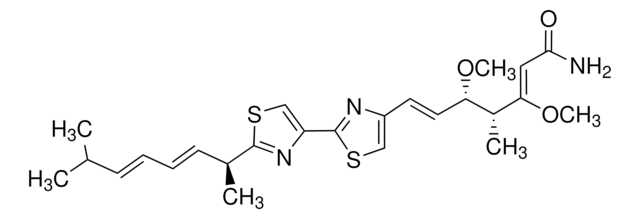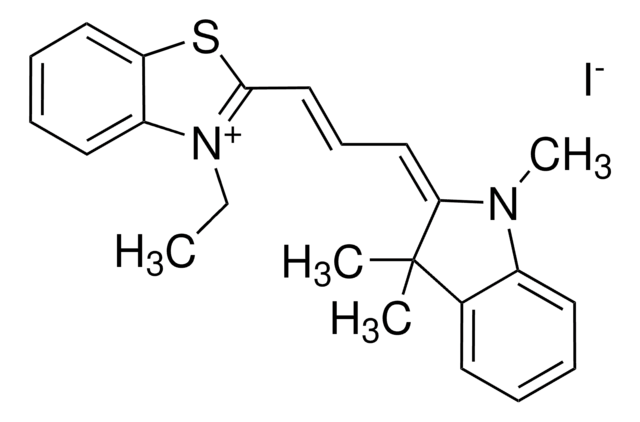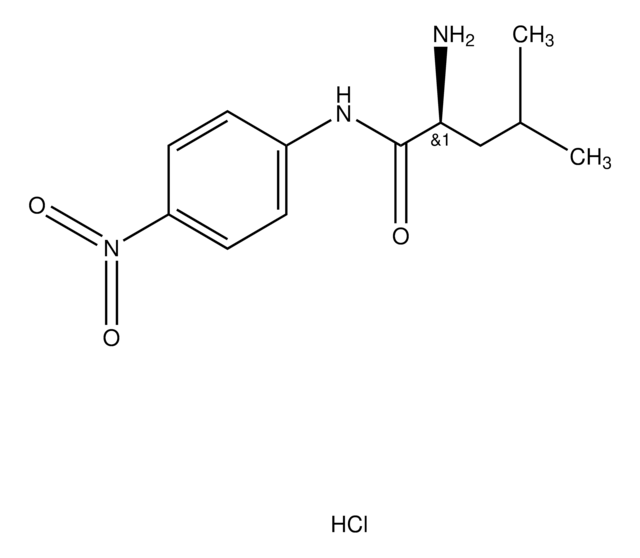T182
Tyrphostin A9
solid
Synonym(s):
Malonoben, [[3,5-bis(1,1-Dimethylethyl)-4-hydroxyphenyl]methylene]propanedinitrile
About This Item
Recommended Products
biological source
synthetic (organic)
Quality Level
Assay
≥98% (HPLC)
form
solid
color
yellow
mp
139-140 °C
solubility
ethanol: 20 mg/mL
DMSO: <25 mg/mL
H2O: insoluble
SMILES string
CC(C)(C)c1cc(\C=C(\C#N)C#N)cc(c1O)C(C)(C)C
InChI
1S/C18H22N2O/c1-17(2,3)14-8-12(7-13(10-19)11-20)9-15(16(14)21)18(4,5)6/h7-9,21H,1-6H3
InChI key
MZOPWQKISXCCTP-UHFFFAOYSA-N
Gene Information
human ... EGFR(1956) , ORAI1(84876) , PDGFRA(5156) , PDGFRB(5159)
mouse ... Eef2k(13631) , Prkaca(18747) , Prkca(18750) , Src(20779)
Application
Biochem/physiol Actions
Features and Benefits
Preparation Note
Signal Word
Danger
Hazard Statements
Precautionary Statements
Hazard Classifications
Acute Tox. 3 Dermal - Acute Tox. 3 Oral
Storage Class Code
6.1C - Combustible acute toxic Cat.3 / toxic compounds or compounds which causing chronic effects
WGK
WGK 3
Flash Point(F)
Not applicable
Flash Point(C)
Not applicable
Personal Protective Equipment
Choose from one of the most recent versions:
Already Own This Product?
Find documentation for the products that you have recently purchased in the Document Library.
Our team of scientists has experience in all areas of research including Life Science, Material Science, Chemical Synthesis, Chromatography, Analytical and many others.
Contact Technical Service









